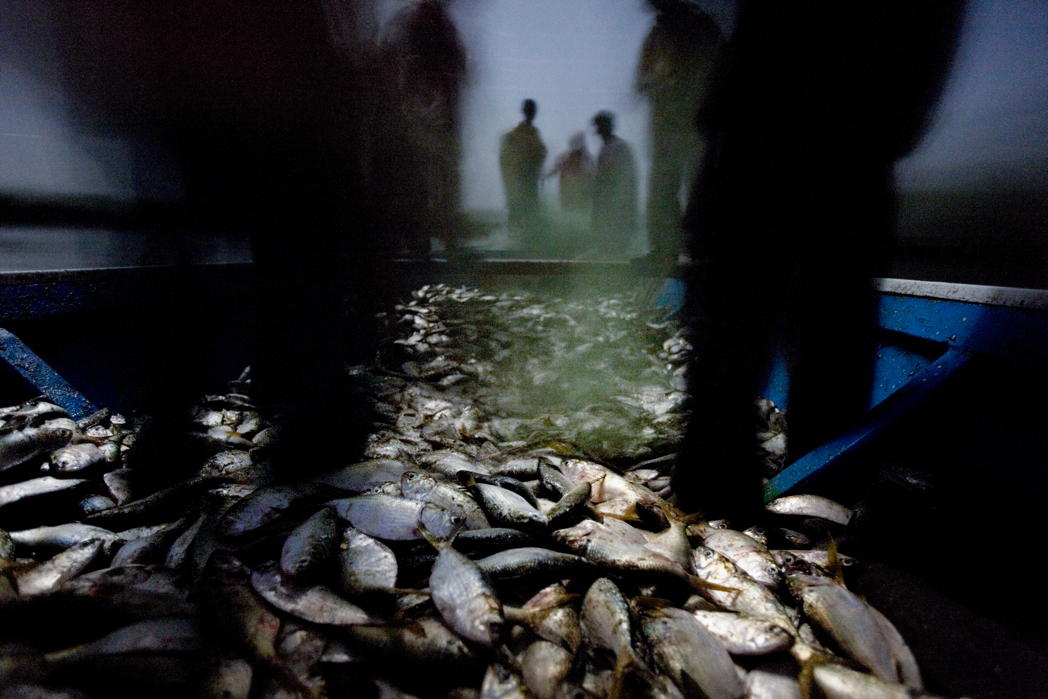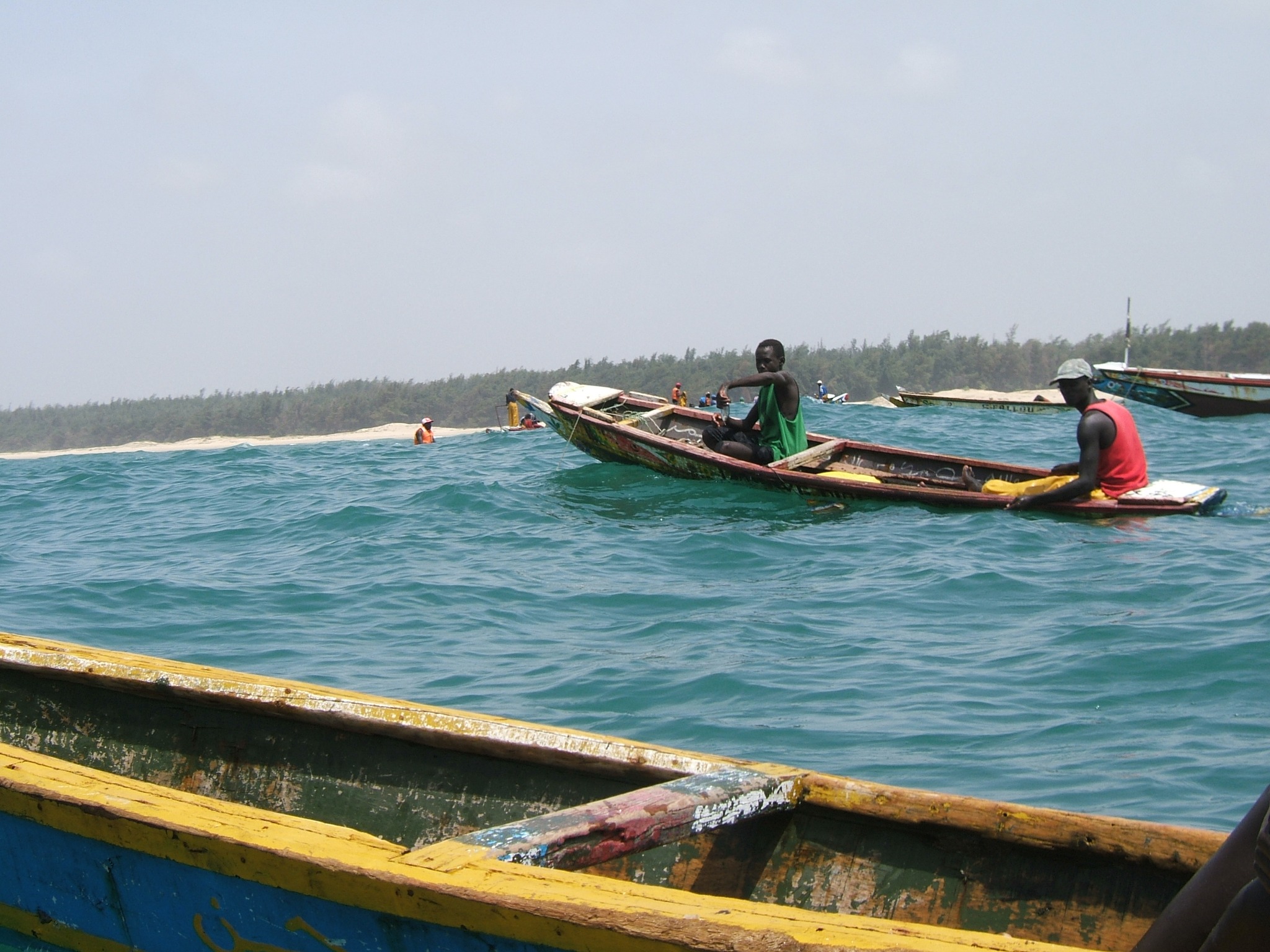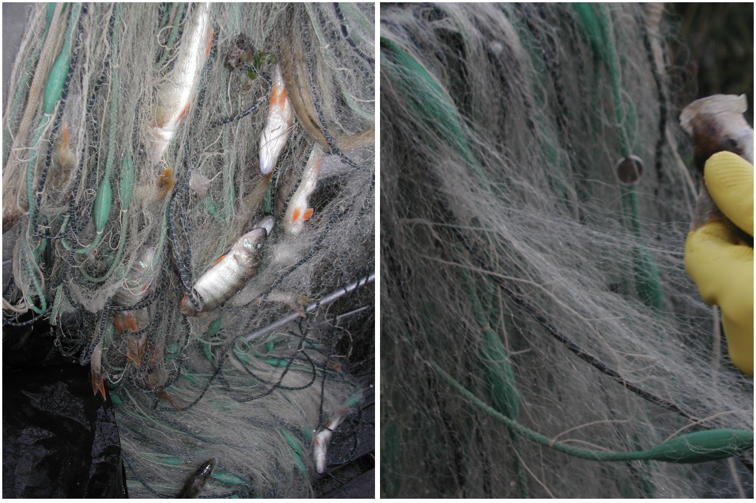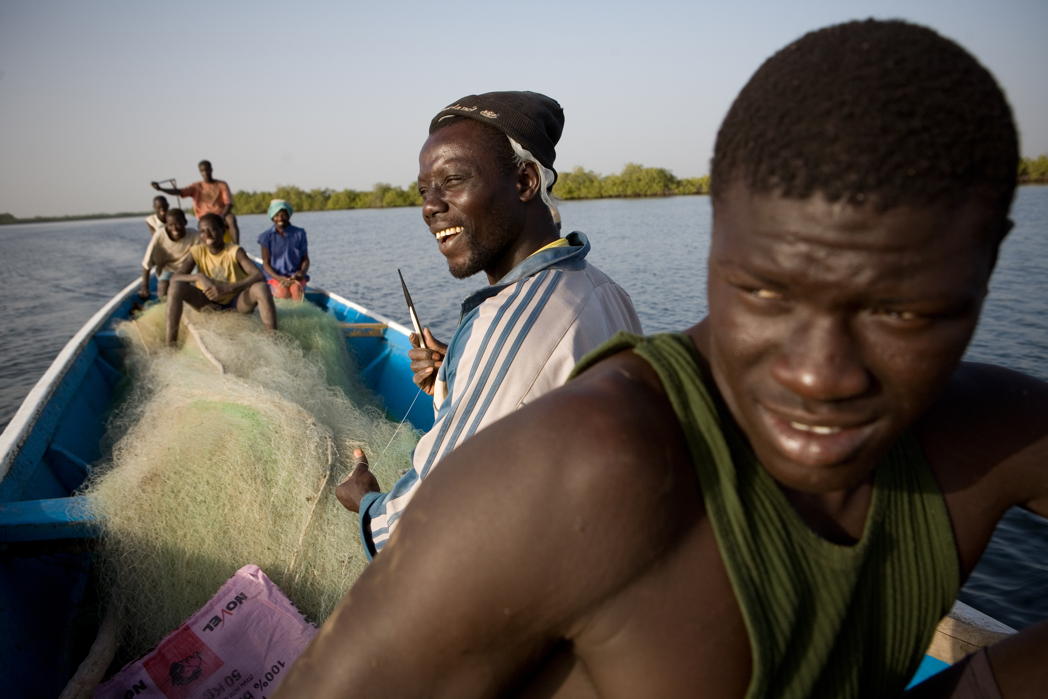How big does a step have to be so one can consider it an improvement in animal welfare, and how small can it be and still be considered as such? It’s an old debate, yet there are moments when it needs to be reignited.
(mehr …)Schlagwort: artisanal fisheries
-
Suche:
Übersetzen · Translate
Alle Themen · All topics:
Stichwortliste · Keyword list
animal suffering Animal welfare artisanal fisheries Batäubung Belt-and-Road-Initiative Blauhai Bosporus bottom trawl bycatch Canada Catch Welfare Plattform certification CFFA CAPE Chancay Chile China Containerhafen Don Staniford Erderwärmung escapes EU Europa Exclusive Economic Zone EEC fair-fish fair-fish database Faroe Fischereiabkommen Fischereisubventionen Fischmehl Fischöl fisheries agreements fisheries management FishEthoGroup fish meal fish oil Fish stocks Fish welfare Gesellschaft Greenpeace Humpback whale ICES ICSF Intelligenz International maritime law Invertebraten Kognition Korruption labels Lachs Lachszucht Litopenaeus vannamei Marine Protected Areas (MPA) migration mortality Mycroprotein Nervensystem North-east Atlantic Oceana Oktopoden Omega-3 Ostsee Pacific whiteleg shrimp Pakistan Panamakanal Parasiten Peru Philippines phytoplankton play Pole and line Polen Rainer Froese Raumfahrt Ray Hilborn Reducing animal suffering Salmon Sandtigerhai Schifffahrt Schottland sea lice Seawater Cube Senegal Slapp small-scale fisheries small scale fisheries stocking density Tierleid Tierschutz Tintenfische UK US Navy Venezuela Westafrika whales Whale shark Wirbellose WTO Zivilisation Zooplankton Überfischung
Artikelarchiv · Articles by date
-
Small fisher(wo)men make a big difference
Small-scale artisanal fisheries are largely underestimated in terms of their catch volumes and contribution to the local economy — and at the same time they are adversely affected by industrial fishing, offshore aquaculture, tourism and other uses of coastal waters. Assessing the value and importance of small-scale fisheries is a crucial step towards countering the threats they face. This also benefits fishes, because if fisheries can minimise the suffering of the animals concerned, small-scale fisheries are more likely to succeed than their industrial competitors, which use heavy fishing gear.
(mehr …)Suche:
Übersetzen · Translate
Alle Themen · All topics:
Stichwortliste · Keyword list
animal suffering Animal welfare artisanal fisheries Batäubung Belt-and-Road-Initiative Blauhai Bosporus bottom trawl bycatch Canada Catch Welfare Plattform certification CFFA CAPE Chancay Chile China Containerhafen Don Staniford Erderwärmung escapes EU Europa Exclusive Economic Zone EEC fair-fish fair-fish database Faroe Fischereiabkommen Fischereisubventionen Fischmehl Fischöl fisheries agreements fisheries management FishEthoGroup fish meal fish oil Fish stocks Fish welfare Gesellschaft Greenpeace Humpback whale ICES ICSF Intelligenz International maritime law Invertebraten Kognition Korruption labels Lachs Lachszucht Litopenaeus vannamei Marine Protected Areas (MPA) migration mortality Mycroprotein Nervensystem North-east Atlantic Oceana Oktopoden Omega-3 Ostsee Pacific whiteleg shrimp Pakistan Panamakanal Parasiten Peru Philippines phytoplankton play Pole and line Polen Rainer Froese Raumfahrt Ray Hilborn Reducing animal suffering Salmon Sandtigerhai Schifffahrt Schottland sea lice Seawater Cube Senegal Slapp small-scale fisheries small scale fisheries stocking density Tierleid Tierschutz Tintenfische UK US Navy Venezuela Westafrika whales Whale shark Wirbellose WTO Zivilisation Zooplankton Überfischung
Artikelarchiv · Articles by date
-
Small fisher(wo)men make a big difference
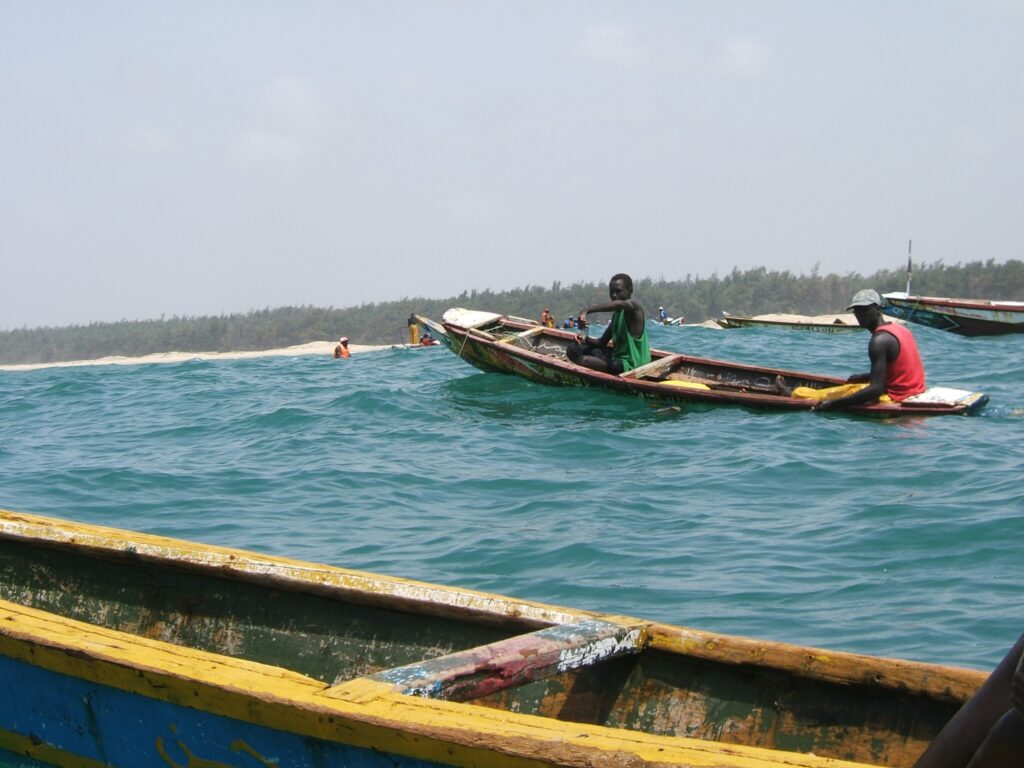
Handliners on the coast of Kayar, Senegal (photo: Billo Studer) Small-scale artisanal fisheries are largely underestimated in terms of their catch volumes and contribution to the local economy — and at the same time they are adversely affected by industrial fishing, offshore aquaculture, tourism and other uses of coastal waters. Assessing the value and importance of small-scale fisheries is a crucial step towards countering the threats they face. This also benefits fishes, because if fisheries can minimise the suffering of the animals concerned, small-scale fisheries are more likely to succeed than their industrial competitors, which use heavy fishing gear.
(mehr …)Suche:
Übersetzen · Translate
Alle Themen · All topics:
Stichwortliste · Keyword list
animal suffering Animal welfare artisanal fisheries Batäubung Belt-and-Road-Initiative Blauhai Bosporus bottom trawl bycatch Canada Catch Welfare Plattform certification CFFA CAPE Chancay Chile China Containerhafen Don Staniford Erderwärmung escapes EU Europa Exclusive Economic Zone EEC fair-fish fair-fish database Faroe Fischereiabkommen Fischereisubventionen Fischmehl Fischöl fisheries agreements fisheries management FishEthoGroup fish meal fish oil Fish stocks Fish welfare Gesellschaft Greenpeace Humpback whale ICES ICSF Intelligenz International maritime law Invertebraten Kognition Korruption labels Lachs Lachszucht Litopenaeus vannamei Marine Protected Areas (MPA) migration mortality Mycroprotein Nervensystem North-east Atlantic Oceana Oktopoden Omega-3 Ostsee Pacific whiteleg shrimp Pakistan Panamakanal Parasiten Peru Philippines phytoplankton play Pole and line Polen Rainer Froese Raumfahrt Ray Hilborn Reducing animal suffering Salmon Sandtigerhai Schifffahrt Schottland sea lice Seawater Cube Senegal Slapp small-scale fisheries small scale fisheries stocking density Tierleid Tierschutz Tintenfische UK US Navy Venezuela Westafrika whales Whale shark Wirbellose WTO Zivilisation Zooplankton Überfischung
Artikelarchiv · Articles by date
-
Well equipped local services are key to combatting illegal fishing activities
The government of Bangladesh will introduce new regulations for the size and fabric of fishing nets to prevent unwanted bycatch of all kinds of fish due to indiscriminate mesh size. What are the chances of enforcement?
Together with experts and local net manufacturers, the nets will be developed for the respective target species [1]. Back in March 2024, the Bangladeshi Fisheries Minister announced the government’s intention to restrict the production of illegal fishing nets, including monofilament nets [2], which are mainly used for gillnets and which, once lost in the water, become the most dangerous type of ghost nets because fish easily get caught in the finespun but strong synthetic fabric, which does not decompose for many years.
Bangladesh could learn from Senegal’s mistakes
As in many structurally weak countries with widespread poverty, particularly in informal sectors such as artisanal fishing, the main problem is the enforcement of rules against the short-term interests of some stakeholders. Senegal is an illustrative example of this problem. The West African republic, considered one of the best governed countries on the continent, banned monofilament as early as 1987. Despite this law, which has since been confirmed twice, the use of monofilament nets is still widespread in artisanal fisheries [2], as I observed during the fair-fish project I led in Senegal almost 20 years ago. Fisheries officers are occasionally sent out to inspect fishing gear, but too often reportedly look the other way when they come across monofilament nets; there are even officers who are not sure whether monofilament has really been banned [3]. Even the director of Senegal’s marine fisheries authority recently tried to downplay the threat posed by abandoned gillnets to already depleted fish stocks: ‘We still have fish,’ he said, in contrast to the serious scientific evidence.
My own experiences with the local fisheries services were disappointing almost everywhere in Senegal. The officers in charge did not document the daily catches, so when they were asked for data by their superiors, if at all, they made it up, months or even years after the fact, giving the daily weighings to the nearest decimal point. They may not have neglected their work out of sheer laziness, but also under pressure from some fishermen or fishmongers.
Governments should invest in brave officers
However, I had the opportunity to befriend Eric, the then head of the fisheries service of one of the department in the Saloum, a remote region in the south of the country, from where all seconded civil servants, including doctors and teachers, tried to get a job in the capital Dakar as quickly as possible. Not so Eric. After being in charge of fisheries services at various points along the coast and having to leave again and again because he was performing his duties strictly, he ended up in the Saloum and knew that this was his last post. But even here he had trouble finding staff after two of his agents were severely beaten up in revenge for the confiscation of an irregular net.
Therefore, investing in local fisheries services to equip them with enough trained staff and adequate means of transport and communication is absolutely key to combating and preventing illegal fishing activities. Regulations alone will never do the job.
Title picture:
Permitted gillnet made of monofilament in use by a Swiss artisanal fisherman (credit: Billo Heinzpeter Studer)References:
[1] https://www.dhakatribune.com/bangladesh/370824/fisheries-adviser-farida-govt-to-regulate-size (thanks to ICSF for this link)
Suche:
Übersetzen · Translate
Alle Themen · All topics:
Stichwortliste · Keyword list
animal suffering Animal welfare artisanal fisheries Batäubung Belt-and-Road-Initiative Blauhai Bosporus bottom trawl bycatch Canada Catch Welfare Plattform certification CFFA CAPE Chancay Chile China Containerhafen Don Staniford Erderwärmung escapes EU Europa Exclusive Economic Zone EEC fair-fish fair-fish database Faroe Fischereiabkommen Fischereisubventionen Fischmehl Fischöl fisheries agreements fisheries management FishEthoGroup fish meal fish oil Fish stocks Fish welfare Gesellschaft Greenpeace Humpback whale ICES ICSF Intelligenz International maritime law Invertebraten Kognition Korruption labels Lachs Lachszucht Litopenaeus vannamei Marine Protected Areas (MPA) migration mortality Mycroprotein Nervensystem North-east Atlantic Oceana Oktopoden Omega-3 Ostsee Pacific whiteleg shrimp Pakistan Panamakanal Parasiten Peru Philippines phytoplankton play Pole and line Polen Rainer Froese Raumfahrt Ray Hilborn Reducing animal suffering Salmon Sandtigerhai Schifffahrt Schottland sea lice Seawater Cube Senegal Slapp small-scale fisheries small scale fisheries stocking density Tierleid Tierschutz Tintenfische UK US Navy Venezuela Westafrika whales Whale shark Wirbellose WTO Zivilisation Zooplankton Überfischung
Artikelarchiv · Articles by date
-
Artisanal fisheries deserve recognition
Artisanal fisheries provide 53% of the fish consumed worldwide, 90% of employment in fisheries, predominantly in the Global South, and 54% of all catch sale revenues (see graph below). They could provide even more if they were not harried by industrial fisheries. Instead, artisanal fisheries are disregarded.
Artisanal fisher(wo)men in the Global South complain about the frequent disregard of their human rights and demand that their traditional rights to access to water bodies, fishing grounds, landing and transformation sites, and to the market be recognised.
Fisherwomen in particular complain of discrimination and call for their crucial role in artisanal fisheries, families, and communities to be recognised.
Fishing communities complain of marginalisation and demand access to public infrastructure, social services, and development.
On top of these problems, artisanal fisheries on the shores of seas and lakes are among the first to be affected by global warming and therefore need support to overcome its negative impacts.
This is a short summary of workshops with artisanal fisher(wo)man held during the International Year of Artisanal Fisheries and Aquaculture in 2022, made available through a worth seeing video recently by ICSF [1].
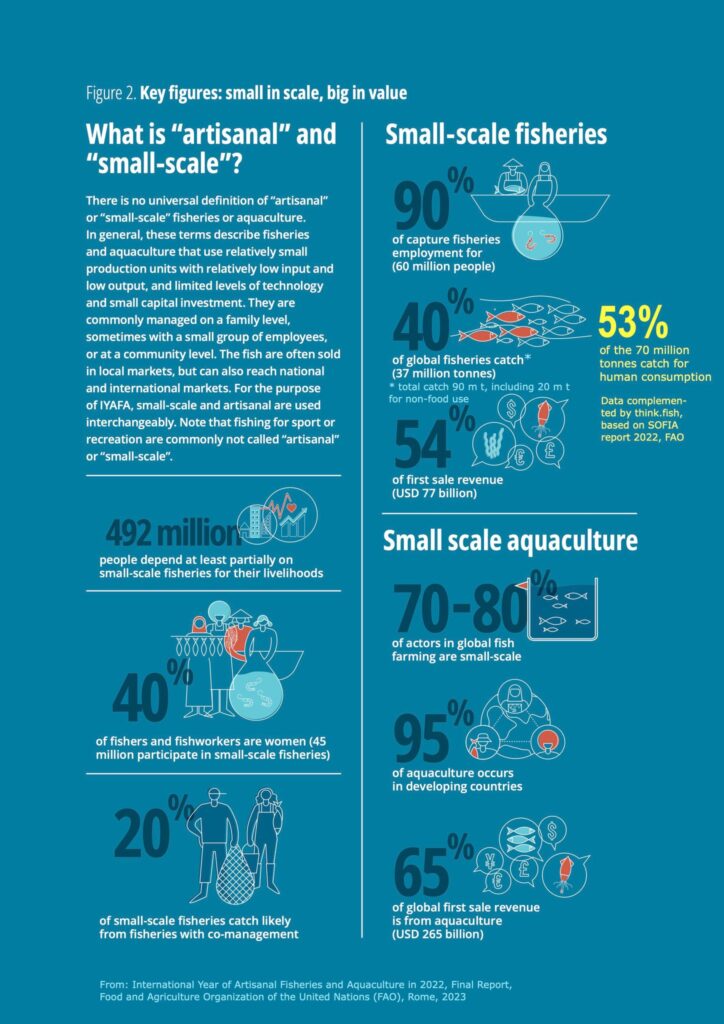
And what about the fishes?
The personal summary of one of the ICSF workshop participants is especially interesting:
‚Maybe we have to look where we haven’t looked before, put ourselves in the skin of the fish.‚
Good point! Putting yourself in the skin of a fish — whether as a consumer, chef,retailer, fishmonger or a primary producer — would also mean to recognise also the rights of the fishes to be at least treated with respect and spared harm as much as possible. It is understandable that fishermen who struggle for their own survival do not pay much attention to the struggle of the animals. A key to substantially reducing animal suffering in fisheries is to improve the living conditions of artisanal fisher communities. The still unrivalled project of fair-fish and artisanal fisheries in Senegal in the noughties [2], which failed because the market was not ready yet, is still waiting for imitators.
Title picture:
Artisanal fishermen on the Saloum, Senegal (credit: Michael Hauri)Sources:
[1] Video about the ICSF Workshops in the International Year of Artisanal Fisheries and Aquaculture (IYAFA, 2024). Thanks to the International Collective in Support of Fishworkers (ICSF) that organised the workshops reported by this video,
[2] see the in-depth chapter in the fair-fish book about the project in Senegal
Suche:
Übersetzen · Translate
Alle Themen · All topics:
Stichwortliste · Keyword list
animal suffering Animal welfare artisanal fisheries Batäubung Belt-and-Road-Initiative Blauhai Bosporus bottom trawl bycatch Canada Catch Welfare Plattform certification CFFA CAPE Chancay Chile China Containerhafen Don Staniford Erderwärmung escapes EU Europa Exclusive Economic Zone EEC fair-fish fair-fish database Faroe Fischereiabkommen Fischereisubventionen Fischmehl Fischöl fisheries agreements fisheries management FishEthoGroup fish meal fish oil Fish stocks Fish welfare Gesellschaft Greenpeace Humpback whale ICES ICSF Intelligenz International maritime law Invertebraten Kognition Korruption labels Lachs Lachszucht Litopenaeus vannamei Marine Protected Areas (MPA) migration mortality Mycroprotein Nervensystem North-east Atlantic Oceana Oktopoden Omega-3 Ostsee Pacific whiteleg shrimp Pakistan Panamakanal Parasiten Peru Philippines phytoplankton play Pole and line Polen Rainer Froese Raumfahrt Ray Hilborn Reducing animal suffering Salmon Sandtigerhai Schifffahrt Schottland sea lice Seawater Cube Senegal Slapp small-scale fisheries small scale fisheries stocking density Tierleid Tierschutz Tintenfische UK US Navy Venezuela Westafrika whales Whale shark Wirbellose WTO Zivilisation Zooplankton Überfischung
Artikelarchiv · Articles by date

